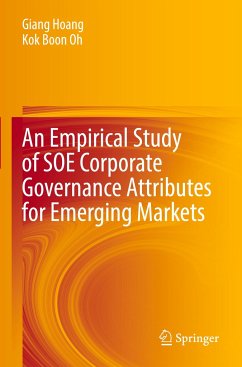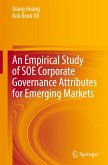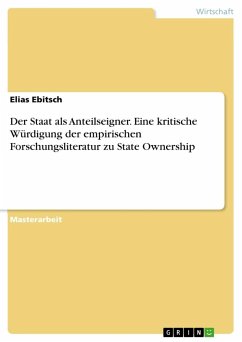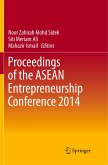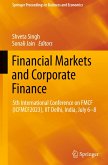This book investigates the institutional characteristics of state-linked firms in Vietnam to draw lessons for investors/MNCs targeting Vietnam and other emerging markets in the region. Vietnam and many other ASEAN countries have gone through a period of privatization and equitization of wholly controlled SOEs, with the State retaining partial ownership in many privatized businesses. This book explains the dynamic relationships between the State, BODs, shareholders, and regulators and their influence on corporate governance and SOE performance. This book differs from other publications in that it extrapolates the findings from our study to a broader context on how the defined internal mechanisms implicate the local economy and global supply chains/markets.
This book investigates robust theoretical foundations, and rigorous applied empirical research underpin the role of the State in SOEs. It differs from other studies in terms of qualitative and empirical research to providethe contextual setting to elucidate how to successfully navigate emerging market business with the State as an "owner-participant." This book explains the theoretical constructs of corporate governance in SOEs, applies empirical research methodologies, and draws results to validate inferences to (1) investigate the link between the board of directors and ownership attributes and agency cost levels using Vietnamese listed firms for the period from 2006 to 2013, (2) evaluate the effectiveness of State's corporate initiatives and monitoring through its sovereign wealth fund known as the State Capital Investment Corporation (SCIC), and (3) infer and explain the motivation of the State as a shareholder.
This book takes cognizance of Vietnam's idiosyncratic institutional (using its sovereign wealth fund as an investment vehicle and management proxy), economic, regulatory, and corporate environments and the realities for developing an effective and sustainable business model, vis-à-vis the ownership structure, board of directors' composition and corporate governance, for better business performance. While the focus is on Vietnam, the content is also relevant to the role of the State in other emerging markets as a player in shaping the business strategy, model, and direction of SOEs.
This book investigates robust theoretical foundations, and rigorous applied empirical research underpin the role of the State in SOEs. It differs from other studies in terms of qualitative and empirical research to providethe contextual setting to elucidate how to successfully navigate emerging market business with the State as an "owner-participant." This book explains the theoretical constructs of corporate governance in SOEs, applies empirical research methodologies, and draws results to validate inferences to (1) investigate the link between the board of directors and ownership attributes and agency cost levels using Vietnamese listed firms for the period from 2006 to 2013, (2) evaluate the effectiveness of State's corporate initiatives and monitoring through its sovereign wealth fund known as the State Capital Investment Corporation (SCIC), and (3) infer and explain the motivation of the State as a shareholder.
This book takes cognizance of Vietnam's idiosyncratic institutional (using its sovereign wealth fund as an investment vehicle and management proxy), economic, regulatory, and corporate environments and the realities for developing an effective and sustainable business model, vis-à-vis the ownership structure, board of directors' composition and corporate governance, for better business performance. While the focus is on Vietnam, the content is also relevant to the role of the State in other emerging markets as a player in shaping the business strategy, model, and direction of SOEs.

